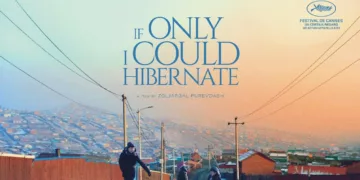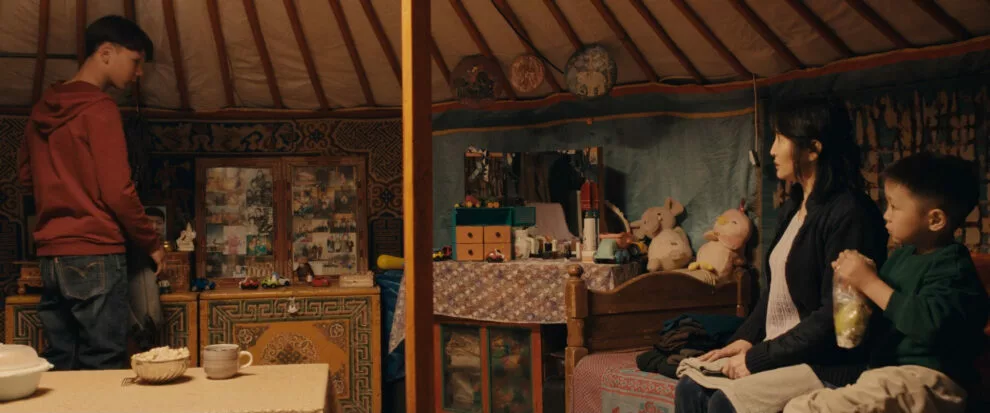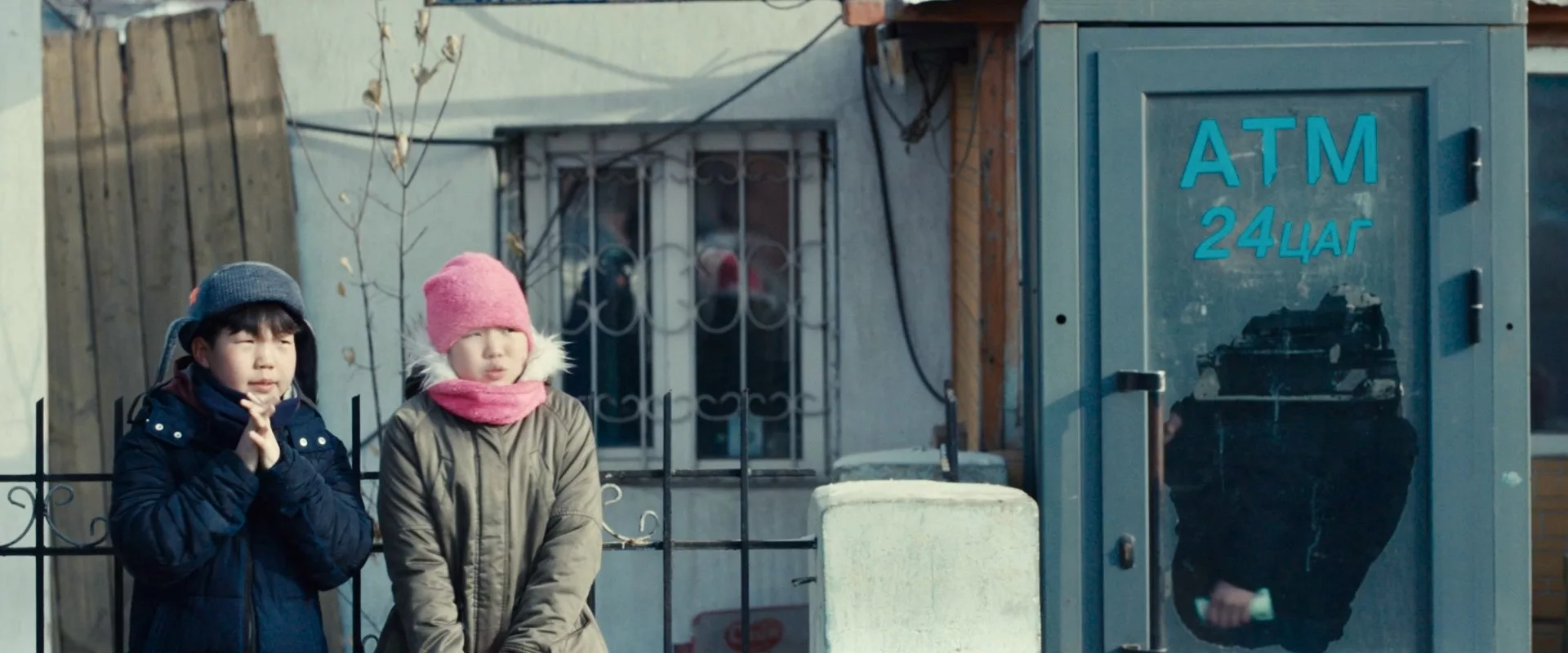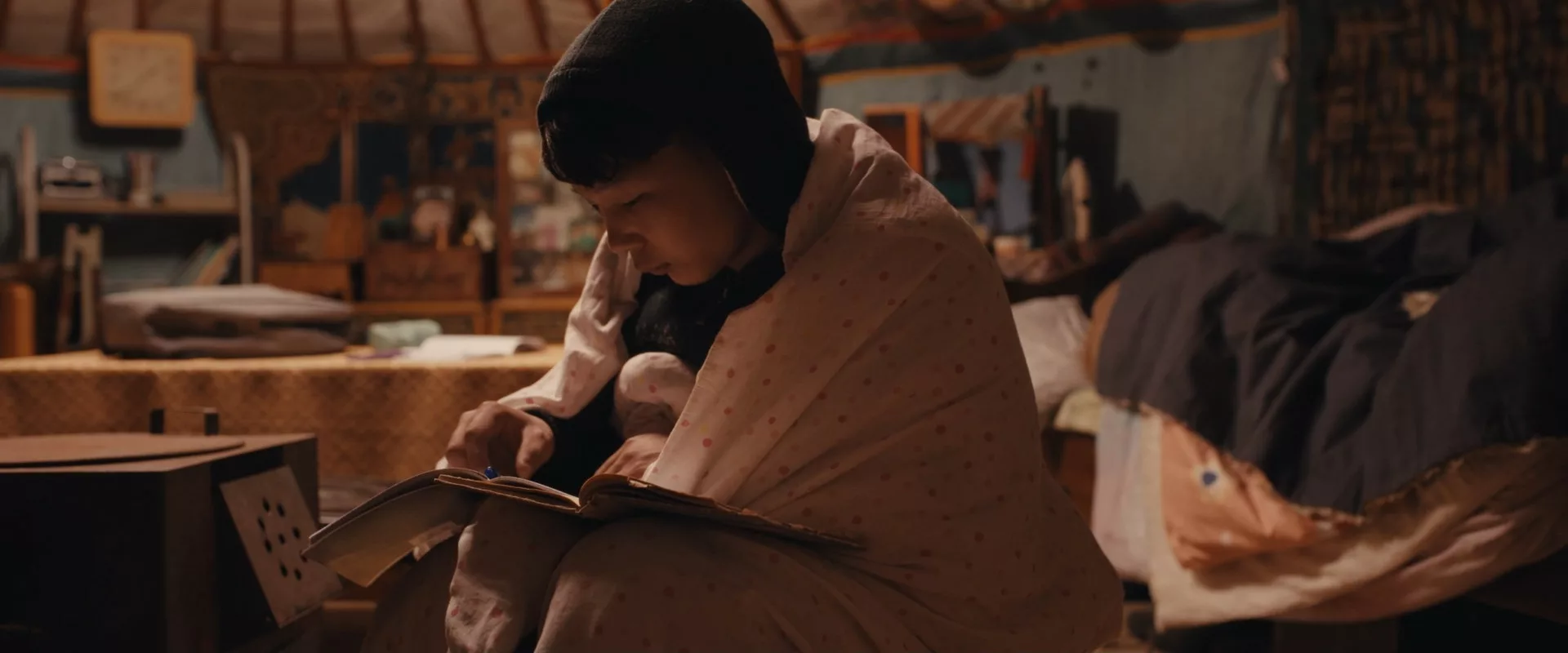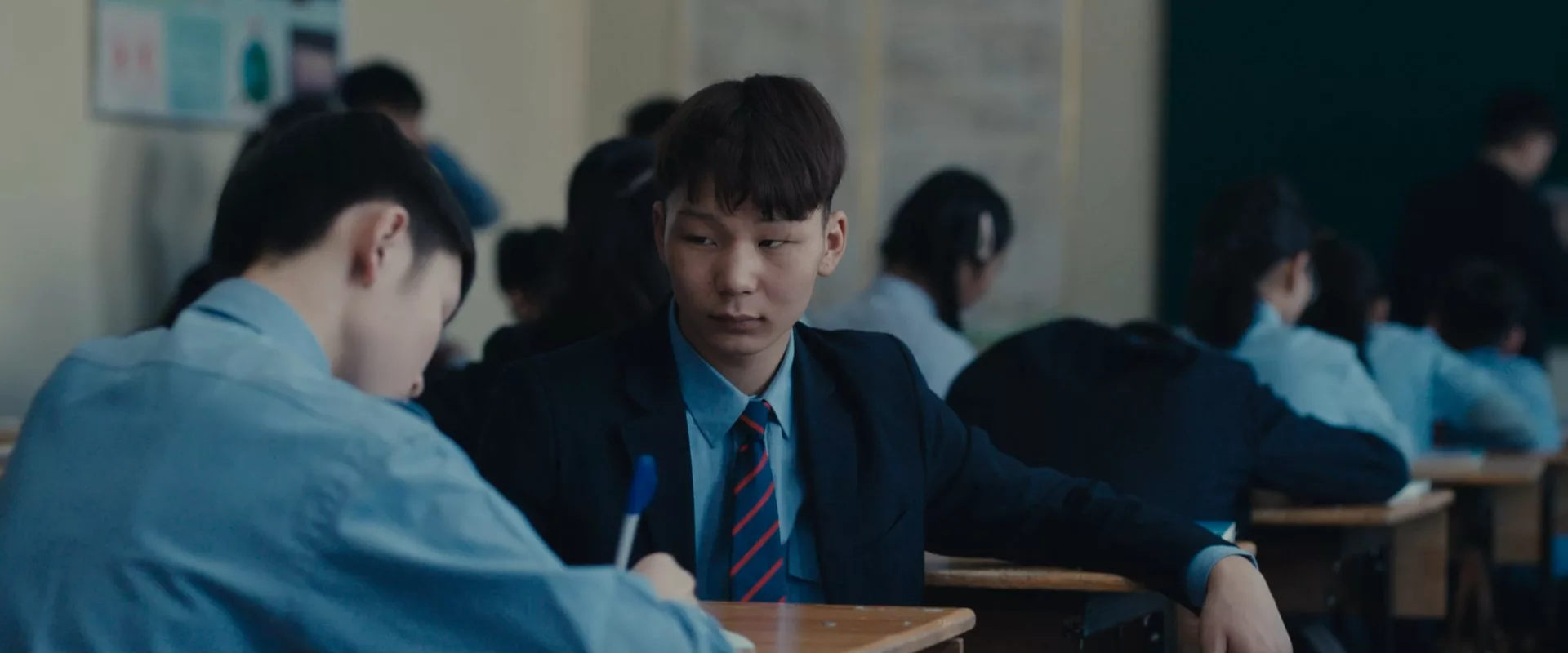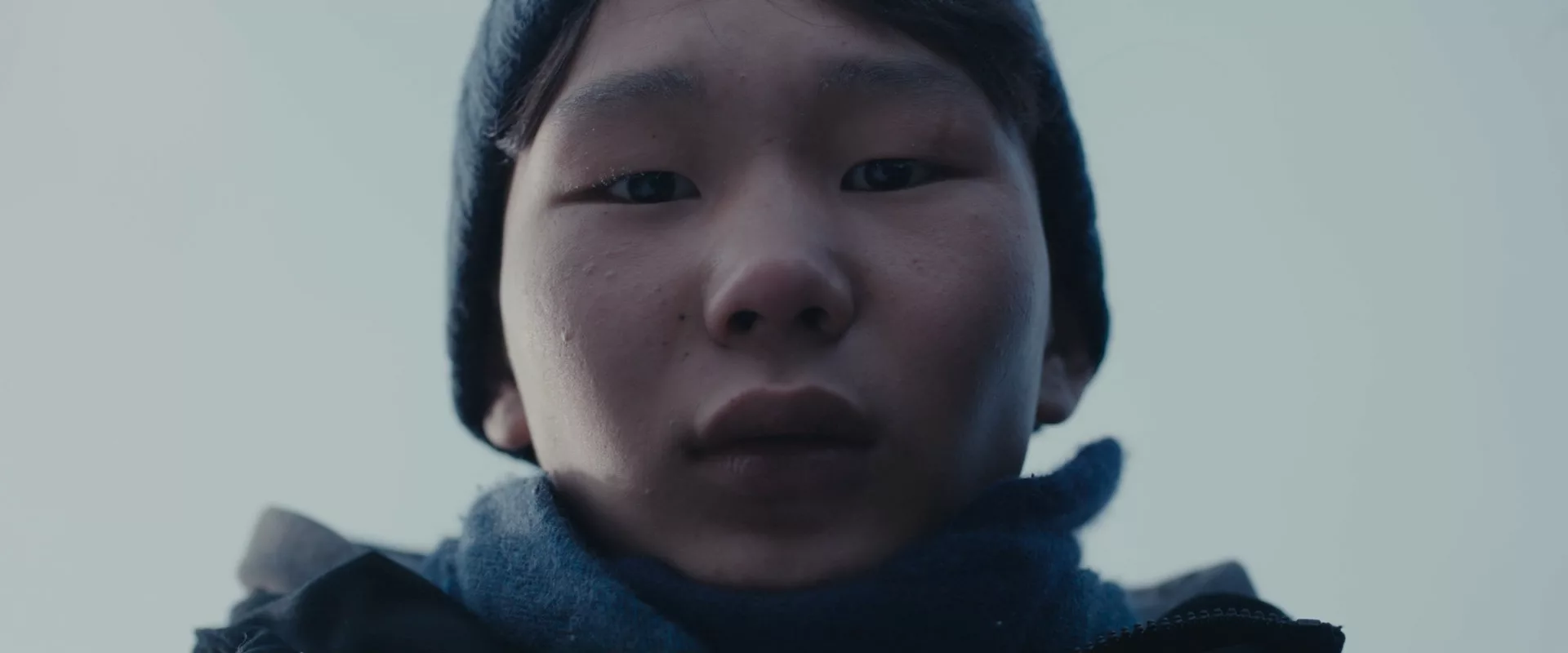Zoljargal Purevdash makes her directorial debut with If Only I Could Hibernate, an impactful film showcasing the challenges facing children in her homeland of Mongolia. As the very first Mongolian movie selected for Cannes’ prestigious Un Certain Regard category, it shines a light on their little-seen way of life.
We meet Ulzii, a studious 14-year-old boy living with his siblings in the sprawling streets of Ulaanbaatar. The capital experiences punishing winters that drop to minus 35 degrees, yet most lack reliable heating. Purevdash paints a vivid picture of their daily fight against the elements in her authentically portrayed scenes.
Facing family hardship as well, Ulzii must find a way to care for his brothers through survival and educational success, despite living in the gaps between society’s support systems. His determination to overcome the odds, even as a child, makes for a moving tale of resilience from start to finish.
Facing the Winter Alone
We’re introduced to Ulzii, a bright 14-year-old boy living in rural Mongolia with his siblings. Their father has passed on, and their mother, Demberel, struggles with alcoholism. To support the family, Ulzii excels in physics and aims to win a national contest that offers a life-changing scholarship. This could provide an escape from their impoverished existence.
However, Demberel unexpectedly leaves one frigid day, taking the youngest child but abandoning Ulzii, Tungaa, and Erkhemee in the unheated yurt on the edges of the capital city. Temperatures plummet to dangerous lows, yet the three are now alone to fend for themselves against the elements. Ulzii steps up as the caretaker, but it’s a daunting responsibility.
Not wanting to give up on school or the competition, Ulzii balances caring for his siblings with his studies. His dedicated teacher offers support, seeing Ulzii’s potential. But challenges soon arise. Erkhemee falls ill with a bad cough, and medicine is far beyond their meager means. Desperate times call for desperate measures, so Ulzii takes on a risky job to afford the necessary treatment.
As winter bears down, keeping warm and fed becomes a daily struggle. Supplies grow thin, and Ulzii fears what will happen if aid doesn’t come soon. When illegal logging work is offered, he decides he has no choice but to risk his educational dreams and go to save his brother’s life. Has Ulzii been forced to choose between family and the future? And can he find a way to have both through strength, smarts, and the help of compassionate people around him?
The cold season brings Ulzii’s strength and resilience to the fore, as he does whatever it takes to protect those he loves. With determination as his shield, will he also find a path forward for himself and his siblings?
Bringing Mongolia to Life
Zoljargal Purevdash’s debut feature, “If Only I Could Hibernate” brings an authentic insight into life in modern Mongolia. Through her lens, viewers witness a reality seldom seen outside the country. Purevdash draws on her own experiences growing up in the yurt districts of the capital, Ulaanbaatar. With obvious care and attention to detail, she crafts a vivid depiction of the daily challenges for those living in poverty.
Audiences are immediately drawn into Ulzii’s world, thanks to Purevdash’s assured direction. Whether it’s capturing the frigid harshness of winter or bustling family scenes inside the yurt, she transports viewers to this distinctive setting. We feel the freezing temperatures along with Ulzii as he battles to keep his siblings safe and warm. Purevdash also presents local cultural traditions with respect, from architecture to attire. This gives audiences abroad a more rounded sense of Mongolian culture.
Perhaps most impressively, Purevdash elicits outstanding performances from her young, non-professional cast. She guides the natural, emotionally honest work of the children playing Ulzii and his siblings. Facing real struggles seems to have given them an innate understanding of their characters. Purevdash’s direction ensures they shine through, driving the film’s impact.
With this film, Purevdash succeeds in bringing international recognition to her homeland’s challenges and spirit. Her personal experiences growing up in similar circumstances lend the work authenticity. Through Ulzii’s story and her skilled direction, Purevdash offers compelling insight into a little-seen way of life, reminding audiences of humanity’s shared hopes, wherever we live. It’s a hugely promising debut from a director with great vision and cultural perspective.
Exceptional Performances From Unknowns
One of the standouts in “If Only I Could Hibernate” is its cast. Leading the way is Battsooj Uurtsaikh in his first major role as Ulzii. With no prior professional acting experience, his performance is nothing short of remarkable. Uurtsaikh portrays Ulzii’s plight in a subtly powerful way, conveying immense strength of character through his physical presence alone.
Whether stoically facing adversity or allowing quiet vulnerability in smaller moments, Ulzii comes to life through Uurtsaikh’s expressive features and carefully crafted movements. He brings an innate understanding to the role, evoking both the hopeful spirit and the burdened reality of his character’s situation.
Supporting Uurtsaikhs is a troupe of equally impressive young non-professionals. Ulzii’s siblings, Tungaa and Erkhemee, Nominjiguur Tsend, and Tulguldur Batsaikhan, showcase a natural sibling dynamic. Their playfulness and bond feel authentic, adding both charm and poignancy. As their disappointing mother, Ganchimeg Sandagdorj perfectly balances fragility with self-destructive flaws. Even very briefly seen characters, like Ulzii’s elderly neighbors, feel fully formed thanks to accomplished turns from Sukhee Lodonchuluun and Davaasamba Sharaw.
Purevdash draws deeply moving work from newcomers to acting. This highlights her skill as a director but also speaks to the raw talent on display. “If Only I Could Hibernate” proves that, with a gifted ensemble and the right guidance, transcendent performances can emerge from anywhere, elevating an already powerful story to even greater heights.
Winter Wonderland of Hardships
The Siberian wilderness provides a harsh backdrop for “If Only I Could Hibernate,” but cinematographer Davaanyam Delgerjargal ensures it’s beautifully captured. Sweeping shots introduce the dramatic Mongolian terrain, with snowcapped mountains stretching endlessly across the horizon. Closer visuals then focus on common ground, where ramshackle yurts stand in place of houses. Delgerjargal paints these districts in shades of gray and white, immersed in thick smog from nearby streets.
It’s within such isolating surroundings that characters face immense struggle. Yet Delgerjargal understands that making misery aesthetically dreary risks distancing the audience. Touches of brightness therefore peek through, like children’s colorful clothing or lit neighborhoods in the dark of night. More poignant are interior scenes, where cramped living spaces take center stage. Here, the director of photography highlights families’ resourcefulness despite a lack of basic amenities.
Especially powerful are scenes showing the devastating effects of cold. Fog overwhelms the characters’ breath, emphasizing their battle just to stay warm. Beyond physical discomfort, such visuals evoke a deeper emotional chill. They convey the stress Ulzii feels as the sole protector of his siblings. As winter bears down, so too does the responsibility weighing heavily on his young shoulders.
No matter the season’s beauty shown in wide establishing shots, Delgerjargal’s cinematography ensures the audience doesn’t forget associated hardships. It gives viewers a real sense of being alongside characters at each step of their journey. From rugged landscapes to intimate home settings, the lens captures reality in an artful yet authentic way, bringing it to life with the distinct style that world director Purevdash aims to portray. Overall, visuals play an integral role in elevating “If Only I Could Hibernate” beyond a story and into a full sensory experience.
Persevering Promise
Modernity collides with tradition in stark ways for Mongolia’s youth. Yet “If Only I Could Hibernate” finds hope amid this clash, concentrating on education’s empowering role. While winter rages and poverty bears down, the film celebrates children persevering towards brighter days.
Ulzii lives where run-down buildings meet nomadic yurts on the city fringe. His world blends new with old as math skills meet superstitions. But between school exams and family duties, something drives him forward—a promise of what learning allows. His teacher sees Ulzii’s potential and refuses to give up, like the flicker of progress Mongolia strives for.
Harsh realities might stall that progress. When illness strikes, illegal “work” cuts into studies as Ulzii does what’s needed. Tradition also hinders, as mom falls back on alcoholism instead of busting through barriers. Yet neighbors maintain communal ties that traditions once fostered, helping in small solidarity acts.
Children themselves uphold modernity’s most basic hope: that each generation can build on past gains. While society shifts turbulently all around, Ulzii and her siblings find stability through diligent schoolwork. Their laughter amid hardship expresses resilience, suggesting that tomorrow may emerge brighter than today.
Regardless of what swirls externally, this inner strength and pursuit of knowledge carry on, finding avenues where none seem clear. Faced with immense struggles for their young shoulders, the film celebrates their perseverance towards a future not defined by current constraints. In displaying kids steady devotion to learning even when all seems lost, “If Only I Could Hibernate” finds poetry in humanity’s persevering promise.
Hope Against Hardship
Zoljargal Purevdash brings a seldom-seen world to life with nuance and care. Her direct lens captures Mongolian reality in all its difficulties, yet she finds flickers of hope amid hardship. While showing the hardships many face, Purevdash balances such realism with optimism in her characters’ resilience.
Through Ulzii’s journey, one gains insights into a life few outsiders may understand. His routine mixes modern aspirations with traditions’ deeper roles, all shaped by surroundings that are both breathtaking and unforgiving. Yet Ulzii perseveres towards the future, where learning lifts him from constraints others struggle to escape. Purevdash presents such struggles with empathy instead of pity, celebrating community and spirit, which endure where systems fall short.
For viewers curious about cultures beyond their own, this film delivers a glimpse into Mongolian civilization with authenticity and heart. While some stories of poverty risk morbid voyeurism, Purevdash’s direction focuses not on suffering but on perseverance—on children believing a way forward exists if they find the strength and support to walk it. Any film that sparks more understanding between separated people deserves wide appreciation. For showing hope that still flowers even in the harshest of soils, If Only I Could Hibernate merits high praise and a place on movie lovers’ must-see lists.
The Review
If Only I Could Hibernate
Zoljargal Purevdash directs a powerful film that introduces Western viewers to Mongolian realities in an authentic yet uplifting manner. If Only I Could Hibernate depicts hardship with compassion, celebrating community strength and humanity's persevering spirit against adversity. Through Ulzii's coming-of-age story, it provides insightful cultural windows rarely seen and thought-provoking perspectives on challenges many face. Purevdash balances realism with hope, crafting a story that stays long in memory.
PROS
- Authentic portrayal of Mongolian cultural realities
- a compassionate yet unflinching depiction of poverty's difficult realities
- An inspiring story of resilience and hope in the face of hardship
- Outstanding performance by the young lead actor
- Evocative cinematography that immerses viewers
CONS
- A minimal backstory is provided for some characters.
- A slow pace won't appeal to all viewers.
- Subtitles needed for non-Mongolian language dialogue
- Could be emotionally heavy for younger viewers.
